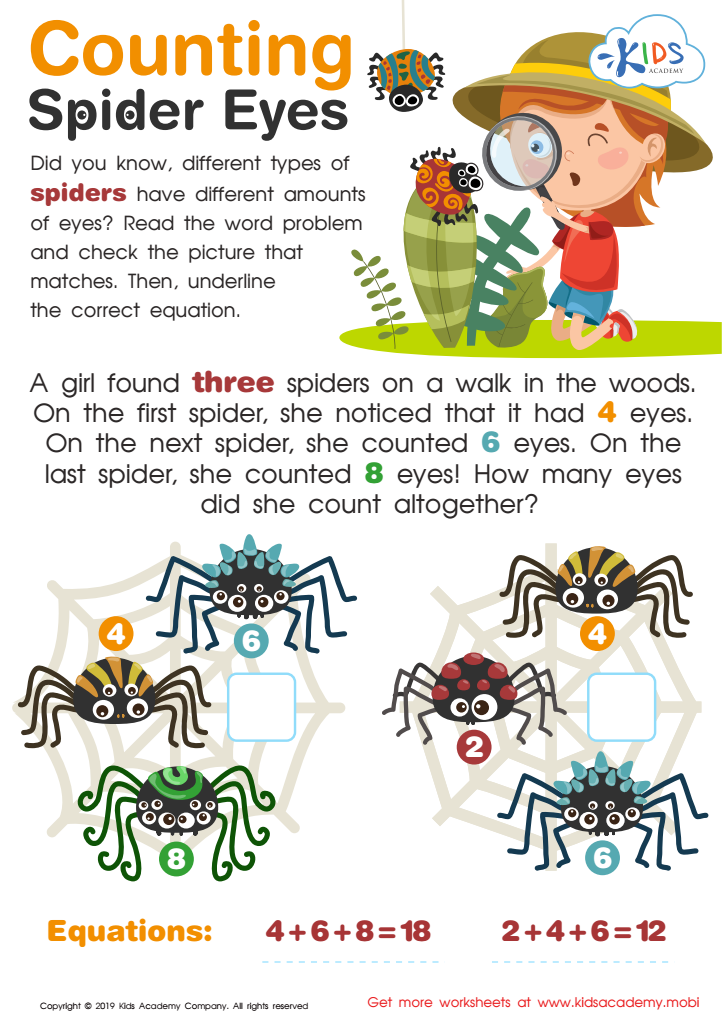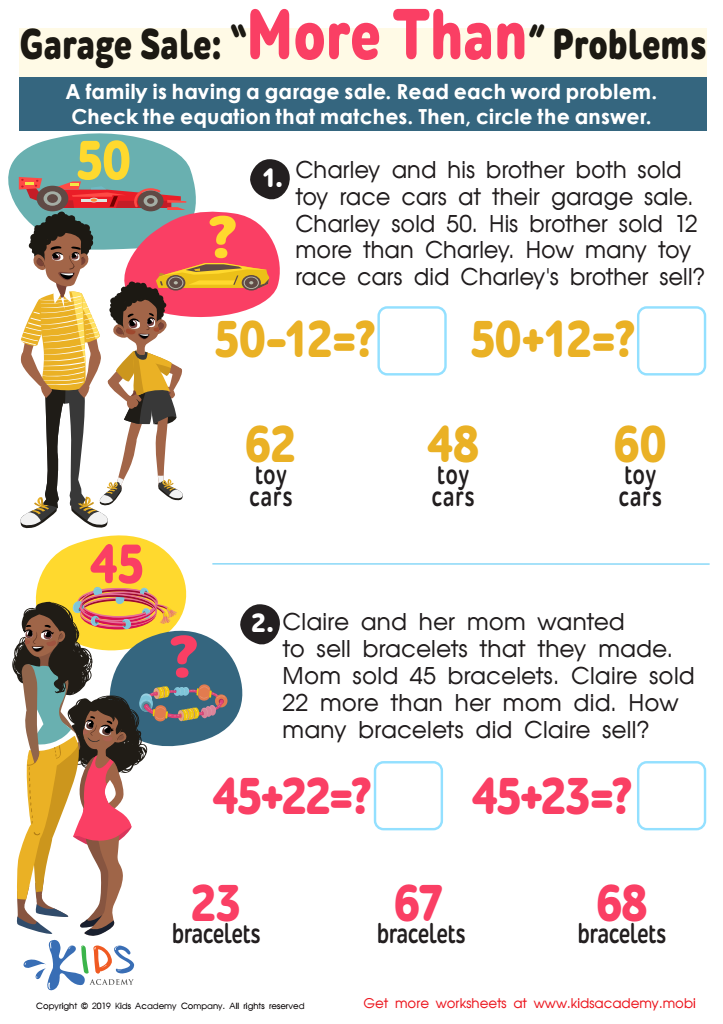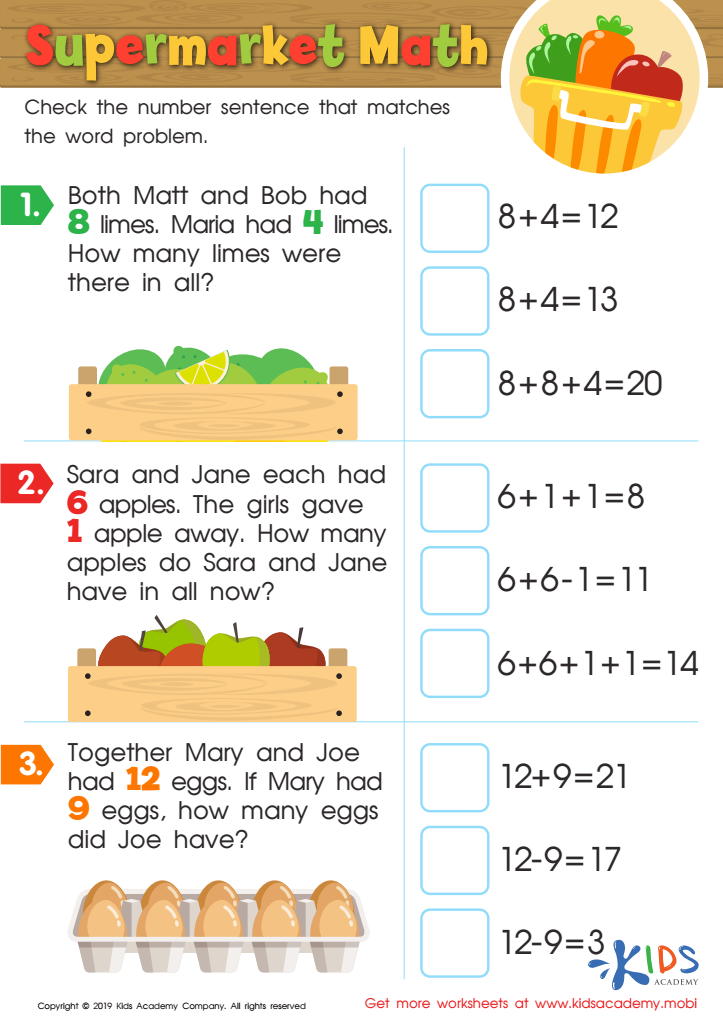Basic Arithmetic Normal Word Problems Worksheets for 7-Year-Olds
4 filtered results
-
From - To
Welcome to our collection of Basic Arithmetic Normal Word Problems Worksheets designed specifically for 7-year-olds! Our engaging worksheets provide a fun and effective way for young learners to practice essential math skills. Each worksheet features relatable real-life scenarios that encourage children to apply addition, subtraction, multiplication, and division in meaningful contexts. With clear instructions and age-appropriate challenges, these math problems help build confidence and problem-solving abilities. Perfect for classroom use or at-home learning, these worksheets promote critical thinking and enhance mathematical understanding. Download now and watch your child grasp the fundamentals of arithmetic through enjoyable and interactive word problems!


Counting Spider Eyes Worksheet


Garage Sale - More yhan Worksheet


Solve the Problem: Trick–or–treating Worksheet


Supermarket Math Worksheet
Basic arithmetic normal word problems are crucial for 7-year-olds’ mathematical development and everyday life skills. First, they enhance comprehension and critical thinking. When children solve word problems, they learn to interpret information, identify relevant details, and apply mathematical concepts in real-world contexts. This skill is fundamental as they progress in their education, fostering a deeper understanding of more complex ideas in future math lessons.
Additionally, word problems promote language skills, as students are required to read and understand the problem before calculating the answer. This intertwining of language and math helps in building vocabulary and comprehension, which are essential for literacy development. Moreover, mastering arithmetic through practical scenarios builds children's confidence as they experience the relevance of math in daily situations, such as shopping, timelines, or organizing events.
Furthermore, by engaging with parents and teachers in these activities, children develop collaborative skills, making learning a shared experience. Ultimately, strong foundational skills in basic arithmetic word problems set the stage for future academic successes and lifelong problem-solving abilities. Hence, parents and teachers should focus on these vital skills to equip children with essential tools for both academic achievement and everyday interactions.
 Assign to My Students
Assign to My Students






















